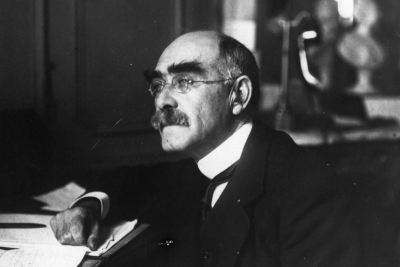
One of the most celebrated poets and storytellers of the 20th century, Kipling remains the youngest recipient of Nobel Prize in Literature (1907). He was 41 at the time.
Born to John Lockwood Kipling and Alice Kipling in Bombay, the writer spent the first few years of his life in India.
In his autobiography, Something of Myself for my Friends Known and Unknown, Kipling described his earliest memories of India.
“My first impression is of daybreak, light and colour and golden and purple fruits at the level of my shoulder. This would be the memory of early morning walks to the Bombay fruit market with my ayah and later with my sister in her perambulator, and of our returns with our purchases piled high on the bows of it,” wrote Kipling.
In 1871, Kipling’s parents sent him to England to begin his schooling. Accompanied by his sister Beatrice, he was sent to a boarding house. The siblings spent the next six years there, which they called “The Desolation House”.
After he finished his school education, Kipling returned to Bombay (now Mumbai) on 18 October 1882.
The writer described the moment thus: “So, at sixteen years and nine months, but looking four or five years older, and adorned with real whiskers which the scandalised Mother abolished within one hour of beholding, I found myself at Bombay where I was born, moving among sights and smells that made me deliver in the vernacular sentences whose meaning I knew not. Other Indian-born boys have told me how the same thing happened to them.”
Kipling started working as a journalist at the Civil and Military Gazette in Lahore. He referred to the gazette as the “mistress and most true love”.
During these years, he published the Plain Tales from the Hills and Departmental Ditties, his first major collection of poems.
In 1888, Kipling moved to Allahabad to work with The Pioneer.
Several of his works like The Phantom ‘Rickshaw and Other Tales, The Story of the Gadsbys, Soldiers Three, Under the Deodars, and Wee Willie Winkie and Other Child Stories were published during this period.
He then decided to move to England to pursue writing full time.
India remained an inspiration to Kipling for his works. However, in post-colonial India, Kipling is seen as an imperialist, especially by nationalists who saw racism in much of his writing. Several other writers, including George Orwell, too disapproved of his political views.
Credit : The Print
Picture Credit : Google




